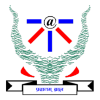
Master of Technology in Data Science and Analytics
Application Close : 25th October 2021
Entrance Test : 14th November 2021
Personal Interaction Session (For Selected Candidates through Entrance Test) : 27th and 28th November 2021
Final Result Out for Selected Candidates : 5th December 2021
Admission Start : 15th December 2021
Commencement of Classes: 10th January 2022
Highlights
M. Tech Data Science and Analytics at the Indian Institute of Information Technology – Allahabad, is a four semesters program designed to develop the skills to analyze, interpret and infer from datasets complemented by a solid foundation of mathematical, statistical and information technology skills. This multidisciplinary program, also the first inter-departmental program at IIIT–Allahabad is steered by the Dept. of Applied Sciences and driven by a collaborative effort of faculties from the Dept. of Information Technology and Dept. of Management Studies. The curriculum designed is mindful of the diversity of students, industry demands and recent technology available for data scientists while emphasizing the foundational concepts for data science. The coursework is designed to include a balance of functional knowledge as well as practical learning spread over four semesters covering Mathematics, Statistics, Computer programming and emerging topics such as Big Data Analytics, Deep Learning, and Data Modeling tools to deal with large scale data.
Researchers and professionals who wish to shape their careers as Data Scientists to solve data driven decision making and problem solving in the fields of Information Technology, Applied Mathematics, Statistics, Biological Information System, Medical Informatics, Business Analytics, Data Science and Applied Physics, etc. should consider applying to this two years Master of Technology Program in Data Science and Analytics.
The explosive growth of data coupled with the increasing demands on data management systems has made effective data engineering a necessity for several diverse domains such as healthcare, fundamental sciences, data intensive technology, business and finance. Given the increasing complexity of data, the need for efficient data engineering techniques for mining useful (pertinent) information from the data is paramount. Information is now regarded as an asset, which facilitates decision-making processes in any organization, thereby saving the organization both time as well as money. Consequently, there is an increasing industry demand for specialized professionals in the area of Data Engineering. The current chasm between the number of opportunities and available resources in the domain of data science and analytics is undeniable.
Currently, very few institutions offer data science as degree programme that span two years including almost one year research exposure in this field. Data science is concerned with the acquisition, storage, retrieval, processing and finally the conversion of data into knowledge where the quantum of data is very large. Data Science heavily uses the more continuous aspects of mathematics together with considerable statistics. It is different from statistics insofar as there is an intense concentration on efficient algorithms to handle very large data sets, in some cases streamed data, and their realization via different architectures and platforms. Saying so, IIIT- Allahabad is having a pool of domain experts in the said above subject areas. Other disciplines that intensively use data science are the physical sciences (Physics, Astronomy, Biology, and Chemistry), Management, Economics and Finance, and Medicine. There is a growing realization that most of the knowledge lies in the data. For example, lot of cutting edge science (LHC, radio astronomy, genetic medicine, genomics and proteomics, molecular simulation, organic synthesis), commerce (supply chains, e-commerce, and finance), medicine (epidemiology, genetic medicine, drug discovery) would be impossible without data science. Consequently, there is a large amount of ongoing work in data science which is spread across disciplines. Given its importance, the need to bring the different disciplinary participants together on a common academic platform is just plain common sense.
OBJECTIVES OF THIS PROGRAM
With advent new high throughput technologies across the domain and large scale experimental setups, the volume of data being generated and being made available for researchers is growing exponentially. These “big-data” sets create a challenge for systematic exploration, mining and analysis due to its large volume, variety and high velocity. These datasets need to be analyzed and mined for the (Knowledge Discovery in Databases) KDD and inference making processes, which has led to the need of Data Scientists/ Data Analyst in almost every domain of science and technology. The main objective of this program is to develop manpower for data and information management opportunities. This will be achieved by an approach involving rigorous and comprehensive academic course work covering theory, fundamentals and hands-on experience with real-world applications through Industrial collaboration. Data Science is gaining prominence in academia and industry. Introduction to this program opens up several new opportunities in science and engineering research and Data Scientist positions are new roles where industry is looking for trained resources. This area offers immense potential and demands for trained manpower with solid foundation of Mathematics, Statistics, and Computer programming and skill sets of Big Data Analytics, Machine Learning and Data Modeling. To address this growing demand, the Dept of Applied Sciences is offering this M. Tech Program in Data Science and Analytics. The program is also backed by the active support from Faculty Members associated with Centre of Cognitive Computing at IIIT Allahabad. This is the first Inter-Departmental Program (IDP), involving Dept. of Management Studies and Dept. of Information Technology.
WHAT IS THE EDUCATION DELIVERY METHODOLOGY?

TOOLS & TECHNOLOGIES:
Apache Spark, Apache Storm for Big Data Systems/ Real time Processing, TensorFlow for Deep Learning; Python for data processing, machine learning, data visualization etc.

CASE STUDIES AND ASSIGNMENTS:
Carefully chosen real-world cases & assignments are both discussed and used as problem-solving exercises during the program.

CAPSTONE PROJECT:
Various capstone projects floated by Industrial partners will help the learner to utilize their skill sets into problem solving and analytical thinking, while using the tools and techniques to interpret and infer from the data.

DISSERTATION/ PROJECT WORK:
The third semester and fourth semester offers an opportunity for learners to apply their knowledge gained to a real world like complex project. The learner is expected to demonstrate understanding of vital principles and their ability to successfully apply these concepts.
CONTINUOUS ASSESSMENT
IIIT Allahabad follows Credit Based Continuous Assessment and Award System. (Choice & Credit Linked Continuous Assessment and Award: CCLCAA). The Continuous assessment takes into account all academic activities undertaken by the student during each academic semester, in which a student is enrolled. This entails activities ensuring continuous assessments such as conduct of Review Test(s), Quizzes, Tutorials, Assignments, Practical assessments, Project Work, Term Work, Seminars / Discussions, etc.
Every coursework is divided into two Components: C1 and C2, each with two units. While the Review Tests would be held during the Semester at the end of said two component C1 & C2 periods respectively, C3 the End Semester Exams shall be scheduled by the (Assessment And Awards) AAA Section of the Institute. Faculty Member(s) shall declare the schedule of Quizzes, Tutorials, Assignments, Seminars, discussions, etc. Certain unannounced assignments may also make a part of the overall assessment. However, students shall be made aware of the assessment modalities that are going to be followed in a course by the faculty.
Mode of teaching will be offline, online, and in few cases as hybrid model. This with ensure that the learners get the best inputs from not only the highly qualifies faculty members at IIIT Allahabad but also the other national and international experts from Industry and Academia.
LEARNING OUTCOMES
By the end of the course, candidates are expected to be proficient in Programming and Statistical Techniques for Data Science along with Data scraping and Data wrangling.
It will also make them competent in Big Data Technologies, Cloud Computing, Deep Learning and Advance AI Applications and able to handle diverse Data Science domains.
Four specializations basket that combine to provide a wide learning and application spectrum shall be provided to facilitate the candidate in selecting their dominant interest:
Pool-1-Biological Information Processing
Pool-2-Social Networks/e-commerce and processes
Pool-3-Finance, Strategy and Planning
Pool-4 Cognitive Computing
The output of this M. Tech. Data Science and Analytics program will be skilled manpower which can cater to the needs of the country in various data intensive areas like health informatics, business informatics, forecasting and automation. This program will definitely boost the development and creation of future knowledge creators and serve as a valuable pipeline between the Institute and existing data intensive industries and operation sector.
Government of India and private sectors are providing lots of endorsement and thrust in the areas of Data Science and Analytics. At the end of the program, the student will find themselves identifying cutting edge research opportunities at various research laboratories as well as several industries which are currently involved in this field. Almost 2.5 quintillion bytes of data is getting generated every day. Additionally, about 90 % of traceable data has been generated in just last 5 years! With a growth rate of 40 % compounded annually, data science and analytics has become one of the most demanding technologies in recent years. Almost all IT, Pharmaceutical, Financial forecasting firms are currently working in the area of analytics and the market of Data Analytics is anticipated to grow at an exponential rate. This gives the prospective students of the program a very bright future and promising placement scenario.
ADMISSION PROCEDURE
True to the multi-disciplinary nature of Data Science and Analytics, the potential students for this graduate program will be those with engineering undergraduate or equivalent degree.
Candidates with a Four Years Bachelor’s degree in any branch of Engineering/Technology from educational Institutions approved by AICTE/Government, Four year B.Sc. or equivalent in appropriate discipline (with first class or 60% marks (55% for SC/ST) or a minimum Cumulative Grade Point Average (CGPA)/Cumulative Performance Index (CPI) of 6.5 (6.0 for SC/ST) on the scale of 10 in qualifying degrees).
OR
Master’s degree in Physics/Mathematics/Statistics/Life Sciences and related subjects from educational Institutions approved by UGC/Government may apply. Students having MBBS and MBA degree can also apply for admission to this program. (With first class or 60% marks (55% for SC/ST) or a minimum Cumulative Grade Point Average (CGPA)/Cumulative Performance Index (CPI) of 6.5 (6.0 for SC/ST) on the scale of 10 in qualifying degrees).
The initial intake of this program is 20 students and split between two streams:
- Funded Applicants: Candidates who wish to avail a fellowship from the institute must possess a valid GATE1 score and also need to successfully qualify the entrance test2 conducted by IIIT-Allahabad. The maximum number of seats in this stream is limited to 10.
- Self-Financed Candidates: Candidates will need to successfully qualify the entrance test2 conducted by IIIT-Allahabad.
1GATE
A valid Graduate Aptitude Test in Engineering (GATE) score in CS, EC, EE, IN, MA, ST, BM, PH or XE is a must. {Instrumentation Engineering(IN), Mathematics(MA), Computer Science and Information Technology(CS), Electronics and Communication Engineering(EC), Electrical Engineering(EE), Engineering Sciences(XE), Statistics(ST), Biomedical(BM), Physics(PH)}
2 Entrance Test
An entrance test will be conducted through a proctored ONLINE test. The candidate needs to have their own laptop/desktop/tab with a working webcam for the same. This test will be proctored and the candidates will be intimated well in advance about the modalities for the test. Selected candidates will be called for an online personal interactive session. The list of successful candidates will be put up here on the program website.
Application Process Date Chart
Number of Seats available / Seat Matrix for Session 2022-2024
General – 10
OBC(NC) – 06
SC – 04
ST – 02
EWS – 03
PWD- 01 (in the corresponding category)
COURSE CURRICULUM
First Semester
Sl. No. | Course | Credits |
1 | Statistical Foundations for Data Science (L2,T1,P1) |
4 Credit Hours each 20 |
2 | Mathematical Foundation for Data Science (L2,T1,P1) | |
3 | Advance Programming (L2,T1,P1) | |
4 | Fundamental of Data Analytics (L2,T1,P1) | |
5 | Optimization and Bio-inspired Computing (L2,T1,P1) |
Second Semester
Sl. No. | Course | Credits |
1 | Information Systems (L2,T1,P1) |
4 Credit Hours each 20 |
2 | Big Data for Data Science (L2,T1,P1) | |
3 | Machine Learning with Large Dataset (L2,T1,P1) | |
4 | Exploratory Data Analysis (L2,T1,P1) | |
5 | Knowledge Engineering (L2,T1,P1) |
Third Semester
Sl. No. | Course | Credits |
Elective 1 & Elective 2 | Two Electives from any of the three Pools with hands-on with specializations Pool-1-Biological Information Processing Pool-2-Social Networks/e-commerce and processes Pool-3-Finance, Strategy and Planning Pool-4 Cognitive Computing |
4 Credit Hours each + 4 Credit Hours Minor Project 12 |
Minor Project | Mini-Project / Capstone Project |
Final Semester
Sl. No. | Course | Credits |
Major Project | Major Project with Industrial Collaboration | 12 Credit Hours 12 |
List of electives
IOT, Information Retrieval, Natural Language Processing, Deep Learning, Time series analysis and forecasting, Data Warehousing, Probabilistic Graphical Models, Astroinformatics, Systems Biology, Medical Imaging, Material Informatics, Climate Informatics, Social Network, Human Inspired Computing, Business Analytics, Marketing Intelligence.
Other electives will be floated with inputs from Industries.
CONTACT
Indian Institute of Information Technology Allahabad
Devghat, Jhalwa, Prayagraj-211015, U. P. INDIA
Phone: 91-532-2922197, Email: dsa@iiita.ac.in